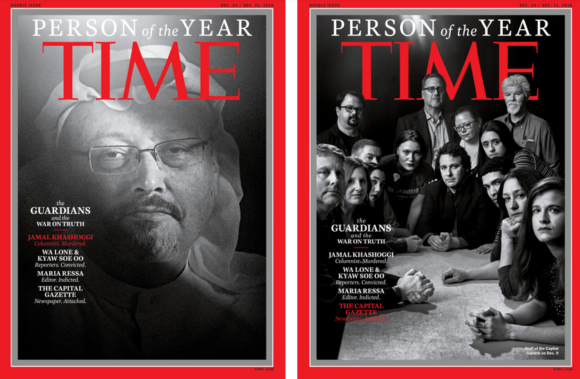Dear Commons Community,
CNN, The Washington Post and other media are reporting that the Senate Intelligence Committee is set to release two reports this week detailing the breadth of a Russian social media campaign to sow discord in the United States.
The reports, both commissioned by the committee, are based on troves of data Facebook, Twitter, and Google handed over to the committee about the Russian campaign to influence the 2016 US presidential election. Much of the data has not previously been disclosed publicly.
The committee hired an online intelligence firm to review data on Russian social media accounts that posed as American accounts.
New Knowledge, one of the firms hired by the committee, tracks online disinformation. In its report to lawmakers, the firm said that the social media companies could have provided more valuable data to the committee and also could have presented it in a more accessible format.
The firm advised lawmakers that there are likely more Russian accounts that the social media companies failed to identify, according to person familiar with the report.
The firm analyzed more than 10 million tweets, 116,000 Instagram posts, and 61,500 Facebook posts sent by the Russian government-linked troll group the Internet Research Agency (IRA), according to the source familiar with the report. The IRA was indicted in February by special counsel Robert Mueller.
Part of the study focuses on the troll group’s “media impersonation and diminishment strategy,” according to the person familiar with the report.
The researchers found there were 44 Twitter accounts posing as US-related news organizations that had amassed more than 600,000 followers. The report notes that many of the phony news organizations posed as local outlets and may have been based on studies that show Americans trust local media over national outlets.
As CNN and other outlets have previously reported, the group also set up a bunch of phony sites targeting specific groups, such as “Black Matters US” that posed as a black activist group and actually conducted real interviews with Americans.
The researchers also found the Russians consistently “attempted to erode trust in mainstream media” and regularly portrayed WikiLeaks in a positive light, according to the source.
A spokesperson for Google said the company did not have a comment on the report but pointed to some of the steps the company has taken to combat disinformation since 2016.
A Twitter spokesperson told CNN the company has made “significant strides” against the manipulation of its service.
“Our singular focus is to improve the health of the public conversation on our platform, and protecting the integrity of elections is an important aspect of that mission,” the spokesperson said. “We’ve made significant strides since 2016 to counter manipulation of our service, which includes our release of additional data in October related to previously disclosed activities to enable further independent academic research and investigation.”
A spokesperson for Facebook said they didn’t have a comment on the report.
While the tech giants were criticized for their cooperation with the Senate Intelligence committee about 2016 meddling, the Justice Department praised the “exceptional cooperation” from Facebook and Twitter in October when it indicted a woman it alleged was involved in an effort to meddle in the 2018 midterm elections.
New Knowledge’s report is due to be made public by the committee this week along with a separate report, also commissioned by the committee, that found the IRA was active on every social media platform and sought to help Trump win. The Washington Post reported the details of the separate report, by Oxford University’s Computational Propaganda Project and Graphika, a network analysis firm, on Sunday.
The separate report shows that Russians working at IRA divided Americans into key interest groups in order to target messaging, the Post reported.
The Russians focused on turning out conservatives to vote with messaging about gun rights and immigration, according to the Post, and spread misinformation to left-leaning African-American voters about how to vote to and tried to undermine their faith in elections. Many other groups, including Latinos, Muslims, Christians, gay men and women, liberals, Southerners and veterans, were also targeted by thousands of social media accounts controlled by Russians, the Post reported.
“What is clear is that all of the messaging clearly sought to benefit the Republican Party — and specifically Donald Trump,” the draft of the report obtained by the Post reads. “Trump is mentioned most in campaigns targeting conservatives and right-wing voters, where the messaging encouraged these groups to support his campaign.”
“The main groups that could challenge Trump were then provided messaging that sought to confuse, distract and ultimately discourage members from voting,” the report continues, according to the Post.
The Senate Intelligence Committee hasn’t announced if it supports the report’s findings, but it plans to publicly release the report along with another separate report later this week, the Post reported.
Perhaps of most concern is that it is likely that the Russians are still attempting to control social media messaging even now.
Tony







